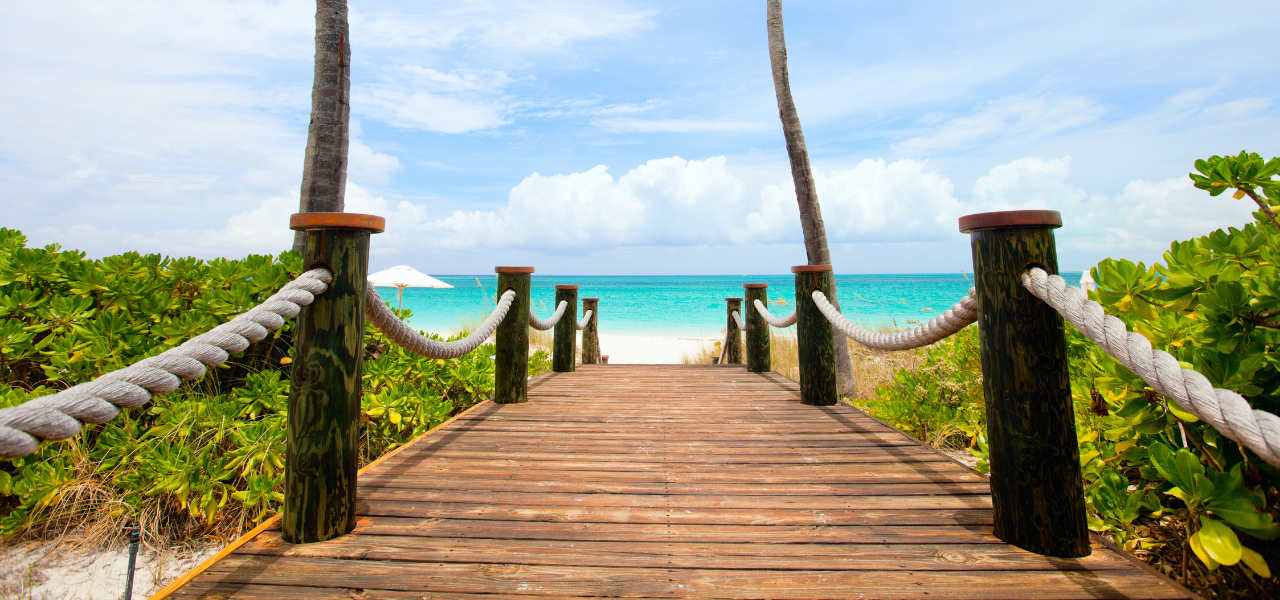Caribbean Citizenship by Investment Regulatory Authority To Be Headquartered in Grenada
The five Eastern Caribbean states - Antigua and Barbuda, Dominica, Grenada, Saint Kitts and Nevis, and Saint Lucia - have formally agreed to establish the Caribbean Citizenship by Investment Regulatory Authority (ECCIRA), a regional body to oversee and harmonise all Citizenship by Investment programmes across the participating five Caribbean nations. The Caribbean Citizenship by Investment Regulatory Authority, which will be headquartered in Grenada, marks a major milestone in the ongoing Caribbean Citizenship by Investment Reform agenda aimed at enhancing transparency, security, and global confidence.
.png)
The Caribbean’s Citizenship by Investment industry is undergoing a historic transformation. Following two years of regional and international consultations, the Organization of Eastern Caribbean States (OECS) has confirmed the establishment of the Eastern Caribbean Citizenship by Investment Regulatory Authority (ECCIRA). This new regional watchdog will oversee all CBI activities across five participating nations, marking the most significant Caribbean Citizenship by Investment Reform to date. Set for legislative implementation by October 2025, this initiative responds to growing international scrutiny while
Headquartered in Grenada, the ECCIRA aims to unify and strengthen standards across jurisdictions, introducing uniform due diligence standards, residency requirements, biometric data collection, and strengthened enforcement mechanisms - indicating a new era of integrity and accountability in the Caribbean’s CBI industry. Set for legislative implementation in October 2025, the initiative is a proactive response to international pressure - particularly from the United States, the United Kingdom, and the European Union - ensuring the longevity and credibility of the Caribbean Citizenship by Investment programmes.
1. The Birth of a Regional Regulator: ECCIRA’s Establishment
The creation of the Eastern Caribbean Citizenship by Investment Regulatory Authority represents the culmination of years of negotiation among OECS Member States. Under the agreement signed by Antigua and Barbuda, Dominica, Grenada, Saint Kitts and Nevis, and Saint Lucia, each government has committed to passing national legislation by October 2025 to give the Authority binding legal authority.
The ECCIRA will serve as the central regulatory body for Citizenship by Investment programmes across these nations. It will set and enforce regional standards, ensuring uniformity in due diligence, agent licensing, and applicant compliance. With offices across all participating islands and its headquarters in Grenada, the Authority is tasked with executing a comprehensive 92-article agreement designed to standardise operations, enhance transparency, and safeguard the reputation of the region’s CBI industry.

2. Purpose and Rationale Behind the Caribbean Citizenship by Investment Regulatory Authority
The ECCIRA has been conceived to serve multiple purposes central to the Caribbean Citizenship by Investment Reform agenda. Chief among them are:
- Harmonisation of CBI Requirements – Ensuring consistent due diligence, investment thresholds, and eligibility standards across all participating states.
- Enhanced Oversight and Enforcement – Granting the Authority investigative powers over agents and developers, with the ability to revoke licenses and impose administrative penalties.
- Residency and Genuine Link Requirements – Strengthening the connection between new citizens and their adopted countries through mandatory in-person interviews, civic education, and minimum physical presence requirements.
- International Reassurance – Addressing the concerns of major global partners, notably the United States, United Kingdom, and European Union, who have raised security and integrity issues regarding CBI programmes.
3. Key Provisions of the Agreement
The new framework introduces several key provisions that will redefine how CBI programmes operate across the Eastern Caribbean:
- Mandatory Pre-Qualification for Agents and Developers: Only those vetted and approved by the ECCIRA will be permitted to participate.
- Biometric Data Collection: All new applicants must provide biometric data during interviews, while existing citizens must do so upon passport renewal.
- Residency and Cultural Integration: Successful applicants must spend at least 30 days within their first five years of citizenship and participate in civic education and cultural orientation.
- Harmonised Due Diligence: Although each state will remain responsible for applicant vetting, all must follow ECCIRA’s standardized protocols and risk indicators.
- Unified Exclusion Policies: Applicants rejected by one participating state cannot apply to another, preventing “jurisdiction shopping.”
- Regional Database and Audits: The Authority will maintain a centralised database of applicants and conduct annual audits of all national CBI units.
- Enforcement Powers: The ECCIRA may issue binding Directives and Codes of Conduct, with breaches treated as violations of law subject to fines or license revocation.
Collectively, these provisions address long-standing concerns about uneven enforcement and complexity in the CBI process.

4. Strengthening Security and Due Diligence
One of the core mandates of the Caribbean Citizenship by Investment Regulatory Authority is to fortify the integrity of the citizenship process. The introduction of biometric data collection - covering both new and existing applicants - marks a significant advancement in regional security protocols.
The ECCIRA will collaborate closely with the CARICOM IMPACS Joint Regional Communications Centre (JRCC), which will now handle due diligence for all applicants across the region. This collaboration ensures that every applicant is subject to robust and standardized background checks, with expanded technological and human resources funded directly from CBI revenues.
5. Economic Sustainability and International Cooperation
While the reforms respond to external scrutiny, they are equally aimed at safeguarding the economic lifeline that CBI revenues represent for the five islands. The US$200,000 minimum investment threshold, introduced in 2024, remains the regional standard - ensuring programmes remain attractive yet credible.
The Organization of Eastern Caribbean States emphasised that dismantling CBI programmes would severely undermine fiscal stability, climate resilience, and post-pandemic recovery efforts. Consequently, the new reforms strike a balance between international compliance and economic sustainability.
The ECCIRA’s creation follows extensive engagement with global partners, including:
- US-Caribbean Roundtables (2023–2024)
- European Commission consultations (Dominica, January 2024)
- UK, US, and EC meetings (Grenada, August 2024; London, January 2025)
- Regional stakeholder sessions (March–August 2025)
These dialogues reflect the Caribbean’s proactive approach - working with, rather than against, global regulators to preserve its economic sovereignty.
Final Thoughts
The establishment of the Caribbean Citizenship by Investment Regulatory Authority, headquartered in Grenada, marks a historic turning point in the evolution of the region’s CBI programmes. It embodies the collective will of Caribbean nations to ensure their Citizenship by Investment frameworks remain both economically vital and globally respected. The ECCIRA agreement stipulates that the Authority will become operational 30 days after the deposit of the fifth instrument of ratification, anticipated by early 2026.
Frequently Asked Questions (FAQs)

1. What is the Eastern Caribbean Citizenship by Investment Regulatory Authority (ECCIRA)?
ECCIRA is a newly established regional body designed to regulate and oversee all Citizenship by Investment programmes in Antigua and Barbuda, Dominica, Grenada, Saint Kitts and Nevis, and Saint Lucia.
2. Why will the ECCIRA be headquartered in Grenada?
Grenada was chosen due to its strong regulatory reputation and active, well-managed Grenada Citizenship by Investment Programme, making it an ideal base for regional oversight and coordination.
3. What is the goal of the Caribbean Citizenship by Investment Reform?
The reform seeks to harmonise standards across all participating states, strengthen due diligence and transparency, and protect the long-term integrity and economic viability of CBI programmes. Read further details in our article on Caribbean CBI Reform details.
4. When will ECCIRA become operational?
The Authority is expected to gain full legal authority by early 2026, following parliamentary approval and ratification by all five participating states.
5. How will ECCIRA affect current and future CBI applicants?
Applicants will be subject to enhanced vetting procedures, mandatory biometric data collection, in-person or virtual interviews, and residency requirements designed to ensure genuine links to their chosen country.
6. What are the potential benefits of ECCIRA for the Caribbean region?
ECCIRA enhances global credibility, protects visa-free access benefits, and reinforces the economic resilience of participating nations by ensuring the longevity of their CBI programmes.





.svg)





.png)





.png)





.png)





.png)





.png)








